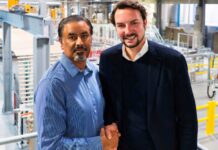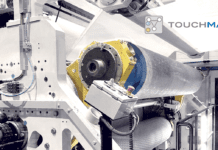(News from RISI) Kimberly-Clark de México (KCM) had strong results in 2013, even though it faced a tough fourth quarter, according to the CEO Pablo Gonzalez. “Overall we had a strong year, but a difficult last quarter. The past year was difficult in many fronts and particularly in terms of consuming environment,” the executive stated. “But we had our best year ever in terms of volumes, sales and profits,” Gonzalez added.
KCM posted a 12% increase in net sales last year over 2012, reaching Peso 4.6 billion ($348.9 million). The company’s net sales hit Peso 29.7 billion, an increase of 1% over the previous year. EBITDA increased by 7% to Peso 8.7 billion.
“The slow economy in the first part of the year and the slow year in public spending in Mexico – we had the slowest job creation in four years -, as well as high food related inflation and fiscal reform, led the Mexican economy to grow 1.2-1.3% while the market was expecting a growth of 3.5% in the start of the year,” Gonzalez commented.
KCM projects to grow top line above the country’s GDP – mostly due to higher volumes – with a soft start of the year and growth accelerating in the second half. “We are expecting moderating dollar increases for fiber for recycling, but slight increases in pulp. We are projecting higher energy prices,” Gonzalez stated.
The executive also mentioned that the company estimates a capex of $150-200 million this year, including a tissue expansion project as well as renovations, new products, product improvements and cost saving plans. In 2013, KCM’s capex totaled Peso $1.6 billion ($123.5 million).
“We continue to be optimistic about Mexican growth perspectives in spite of the weak 2013. The economic fundamentals remain solid, we are confident that consuming levels will be very strong in the coming years. The question for 2014 is when we will see the turning point for economic and consumption growth. Consumption hasn’t picked up as the incremental taxes haven’t been helping,” the CEO concluded.






























